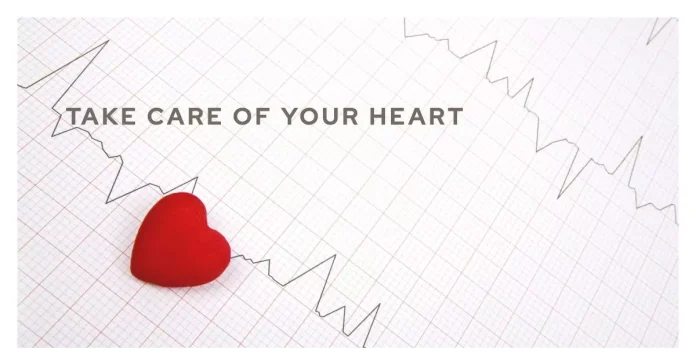Your heart, a vital powerhouse, silently works to keep you alive. However, knowing potential signs indicating your heart health is at risk is crucial. This article will explore common indicators, discuss risk factors, and provide actionable tips for maintaining a healthy heart.
Common Signs Indicating Heart Health Concerns
Recognizing Warning Signs
Our bodies often send signals when something isn’t right. Paying attention to these signs can be a proactive approach to heart health. Some common warning signs include:
• Chest Discomfort: Feeling pressure, tightness, or pain in the chest can be a red flag.
• Shortness of Breath: Difficulty breathing, especially during everyday activities, might indicate an issue.
• Irregular Heartbeat: Pay attention to fluttering or a racing heart, which could indicate an irregular heartbeat.
• Fatigue: Persistent fatigue or weakness, unrelated to physical exertion, may signal a heart concern.What Puts Your Heart at Stake?
Understanding risk factors is crucial for preventive care. Certain factors increase the likelihood of heart issues:
• Age and Gender: Aging and being male pose higher heart health risks.
• Family History: A history of heart disease can increase your risk.
• Smoking: Chemicals in tobacco smoke can harm blood vessels and heart tissue.
• Poor Diet and Lack of Exercise: A sedentary lifestyle and an unhealthy diet contribute to heart problems.Lifestyle Choices for a Healthy Heart
While some risk factors are beyond control, adopting a heart-healthy lifestyle can significantly lower the chances of heart issues. Consider the following tips:
• Balanced Diet: Prioritize eating fruits, vegetables, lean proteins, and whole grains while limiting saturated fats, cholesterol, and sodium.
• Regular Exercise: Aim for at least 150 minutes of moderate-intensity weekly exercise.
• Quit Smoking: If you smoke, quitting represents one of the most beneficial actions for your heart.
• Manage Stress: Practice stress-reducing techniques such as meditation or yoga.
• Regular Check-ups: Schedule regular check-ups with your healthcare provider for heart health assessments.When to Consult a Healthcare Provider
If you experience any warning signs or fall into high-risk categories, seeking professional advice is crucial. Your healthcare provider can conduct tests, assess risk factors, and guide you on personalized preventive measures.
Conclusion
Heart health is a journey; awareness of potential risks is the first step towards a healthier life. Empower yourself to prioritize your heart’s well-being by recognizing warning signs, understanding risk factors, and adopting a heart-healthy lifestyle. Remember, it’s never too early to start caring for your heart.
Frequently Asked Questions (FAQs)
What are the common warning signs of heart health issues?
Common warning signs include chest discomfort, shortness of breath, irregular heartbeat, and persistent fatigue. If you experience any of these, seeking medical attention is essential.
Can heart issues be hereditary?
A family history of heart disease can increase the risk. If you have close relatives with heart problems, it’s crucial to be vigilant and adopt preventive measures.
How can I improve my heart health through lifestyle choices?
Adopting a balanced diet, exercising regularly, quitting smoking, managing stress, and scheduling regular check-ups are critical lifestyle choices for a healthy heart.
What age group is more prone to heart issues?
Aging is a risk factor for heart concerns, and individuals over 65 face a higher likelihood. However, adopting a heart-healthy lifestyle from a younger age can significantly reduce risks.
How often should I have check-ups for heart health?
It is recommended to have regular check-ups, especially if you have risk factors or experience warning signs. Your healthcare provider can assess your heart health and provide personalized guidance.
Is it possible to reverse heart health issues through lifestyle changes?
While lifestyle changes can improve heart health, they may not reverse all conditions. Early detection and proactive measures are crucial.
Can stress impact heart health?
Yes, chronic stress can contribute to heart problems. Practicing stress-reducing techniques such as meditation or yoga is beneficial for maintaining a healthy heart.
How can I quit smoking for better heart health?
Quitting smoking is a crucial step. Seek support from healthcare professionals, use nicotine replacement therapy if needed, and consider support groups or counseling.
What exercises are best for heart health?
Aerobic exercises like walking, jogging, swimming, and cycling are excellent for heart health. Strive to achieve a minimum of 150 minutes of moderate-intensity exercise each week.
When should I consult a healthcare provider about my heart health?
If you experience any warning signs, have risk factors, or are unsure about your heart health, you should consult a healthcare provider promptly for a thorough assessment.










